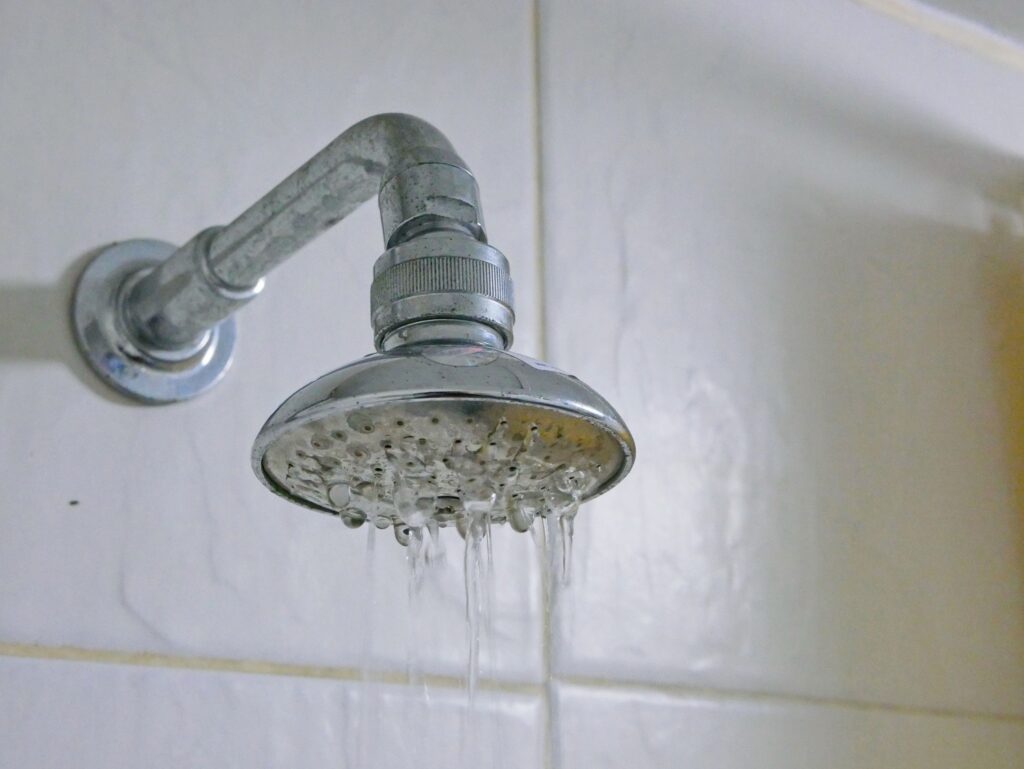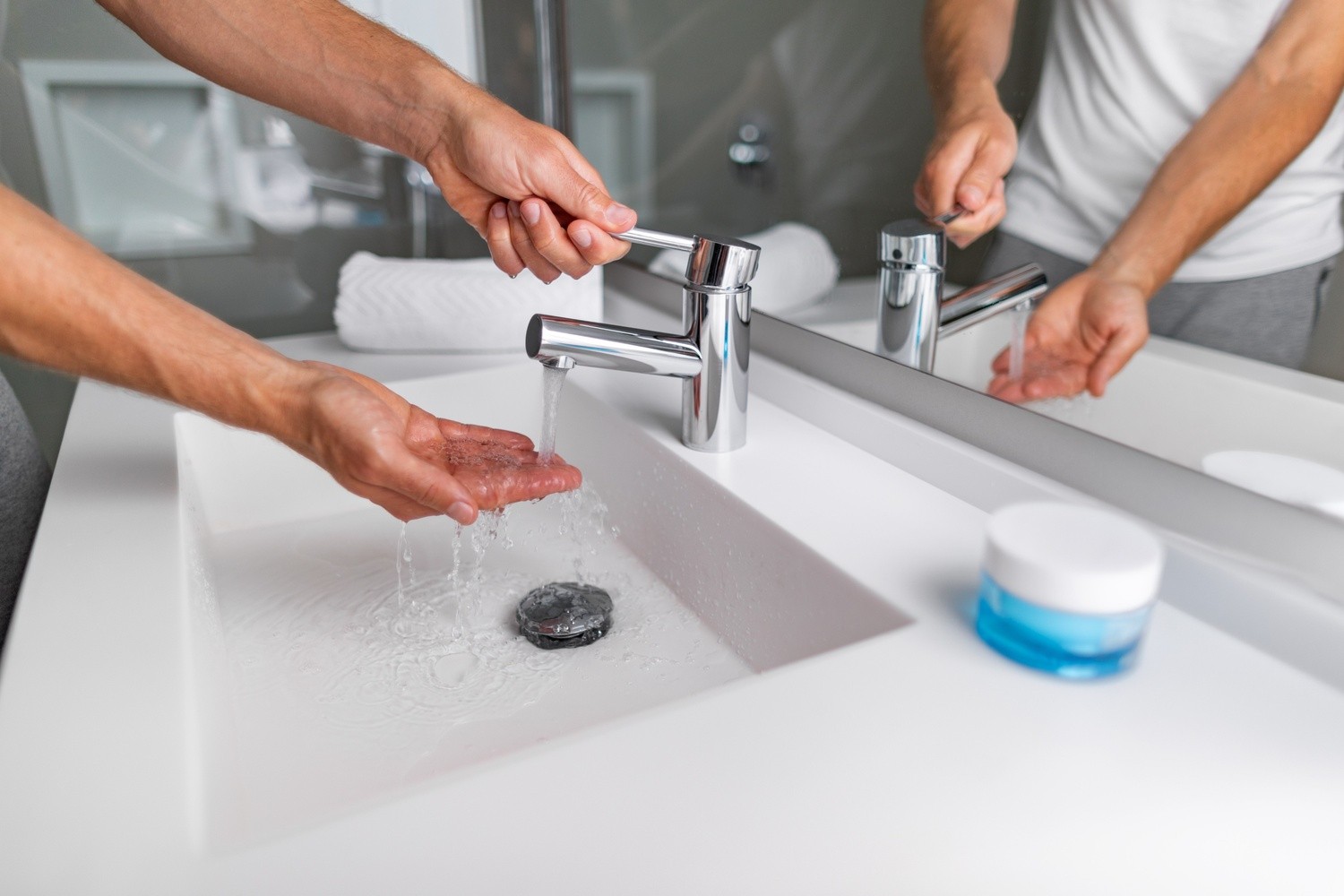Water pressure shapes much of what happens in your home’s plumbing system. When it’s working right, you barely think about it. But when it’s off, you notice quickly: the shower sputters, the kitchen sink slows, or the washing machine takes forever to fill. This article will explore what water pressure is, how it affects your plumbing, and what you can do to keep things flowing smoothly.
What Is Water Pressure, Really?
Water pressure refers to the force that pushes water through your pipes. It’s measured in pounds per square inch (psi), and most homes fall somewhere between 40 and 60 psi. Too low, and you’ll have weak flows from faucets and showerheads. Too high, and you risk stressing pipes and fixtures, leading to plumbing leaks or even bursts.
This balance matters because the plumbing system connects to your hot water supply, garbage disposal, faucet repair needs, and even the efficiency of your appliances.
Why Water Pressure Matters for Daily Life
Consider your daily routine. You brush your teeth, take a shower, make coffee, run the dishwasher—all without thinking twice. But water pressure sits behind each of those tasks. When it’s off, your day slows down or becomes more frustrating. Low pressure means long waits for hot water or slow drains in the shower. High pressure might lead to worn-out plumbing fixtures or increased water bills from tiny, unnoticed leaks.
A plumbing company in Georgetown might help a local homeowner diagnose why their shower feels weak, but the lessons apply no matter where you live. Managing water pressure is about comfort and protecting your system from long-term damage.
What Causes Water Pressure Problems?
Several factors can affect water pressure:
- Clogged pipes or fixtures: Mineral buildup or sediment inside pipes can narrow the space for water to flow, reducing pressure.
- Old or corroded water lines: As pipes age, they may weaken or break, causing drops in pressure.
- Plumbing leaks: Even small leaks can steal pressure from the rest of the system.
- Faulty pressure regulators: These devices control how much pressure enters your home. When they fail, you might see wild swings.
- Municipal supply issues: Sometimes, the problem comes from the city’s side, like during repairs or after a major plumbing event in the area.
Being aware of these common issues helps you approach the problem with practical next steps.
How to Spot Water Pressure Issues at Home
Early signs of water pressure issues aren’t always dramatic. You might notice:
- Laundry room faucets that dribble instead of stream
- Showers that never seem to get forceful
- A washing machine or dishwasher that takes longer to cycle
- Slow drains that don’t clear water properly (often mistaken for clogs)
If you’re dealing with these symptoms, don’t ignore them. Addressing minor plumbing issues early helps prevent major plumbing repairs later. In some cases, professional leak detection can reveal hidden problems inside walls or under floors.
DIY Checks Before Calling a Pro
Before you bring in a plumbing contractor, you can run a few checks yourself.
- Test multiple fixtures: Is the problem isolated (only the bathroom sink) or affecting the whole house?
- Check the main shutoff valve: Sometimes, a partially closed valve limits flow.
- Inspect faucet aerators: These can clog with mineral deposits, reducing flow.
- Look for visible leaks: Water stains, damp spots, or pooling water signal trouble.
If you find that only one fixture struggles, it could be as simple as a faucet repair or cleaning out the aerator. But if the entire house has pressure problems, you might need more involved plumbing repair.
How Water Pressure Affects Major Plumbing Systems
Pressure affects more than just faucets and showers. High pressure can strain water heaters, especially modern tankless water heaters. These systems rely on steady pressure to deliver hot water on demand. Too little, and they underperform; too much, and they may wear out faster.
Your garbage disposal also depends on good flow to break down and flush food particles. Without enough pressure, the buildup can lead to blockages or slow drains. And if you have older plumbing, excess pressure might eventually lead to bursts or damaged connections, requiring major plumbing work.
Preventing Plumbing Emergencies Through Pressure Management
Many plumbing emergencies are traced back to pressure problems that went unaddressed. Burst pipes, broken water lines, and flooding often happen when high pressure weakens the system over time.
Installing a pressure-reducing valve or regular maintenance can help you avoid such disasters. A good plumbing contractor will inspect your system, spot risks early, and suggest the right fixes. Simple steps like adjusting the regulator or repairing leaks can extend the life of your plumbing system and save you money in the long run.
Making Informed Decisions About Plumbing Repairs
When facing water pressure issues, knowing what to ask and expect makes all the difference. A professional plumber offers a wide range of services, from basic inspections to full system upgrades. Sometimes, the right fix is targeted: replacing old pipes, installing updated plumbing fixtures, or servicing specific appliances.
You should also consider how your home’s overall water use impacts pressure. Are you running multiple showers, the dishwasher, and the laundry all at once? Even a healthy system can slow down under that load. Adjusting your daily routine might help balance demand without needing big repairs.
Choosing a Plumbing Company That Goes the Extra Mile
When you’re searching for a plumbing contractor, look for one that goes beyond quick fixes. Excellent service means they take time to explain what’s happening, offer honest assessments, and provide realistic options.
For example, a trusted plumbing company might recommend installing a pressure gauge so you can monitor levels yourself or suggest upgrades to appliances designed to handle variable pressure. They’ll also help you understand the risks of ignoring problems and guide you toward solutions that fit your needs and budget.
Final Thoughts
Water pressure is central to how your home functions. Paying attention to how it affects your water fixtures, appliances, and usage can help you avoid headaches and make smarter decisions about maintenance and repair.
Whether you’re dealing with slow drains, inconsistent hot water, or unexplained plumbing leaks, addressing the underlying pressure issues can save you time, money, and stress. The right plumbing company will offer a range of services to keep your system working smoothly and help you stay ahead of potential problems.


